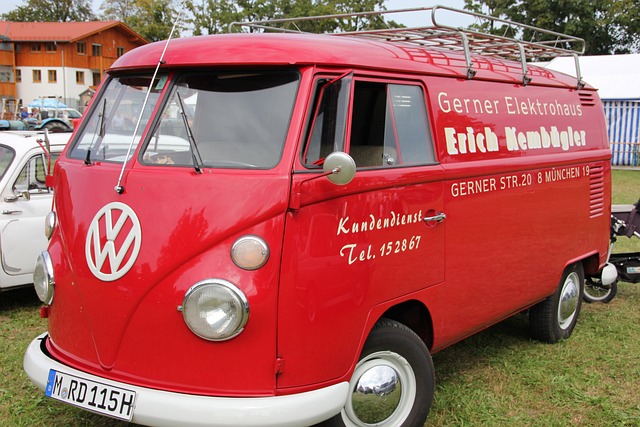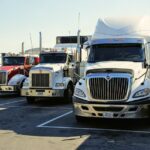Commercial vehicle insurance is essential for protecting businesses that rely on vehicles for their operations. Unlike personal auto insurance, commercial policies are tailored to address the unique risks associated with business vehicle use. These policies offer a variety of coverage options designed to safeguard your vehicles, drivers, and business assets. Here’s a breakdown of the key coverages in a commercial vehicle insurance policy.
1. Liability Coverage
Liability coverage is the cornerstone of any commercial vehicle insurance policy. It protects your business from financial losses if your vehicle is involved in an accident that causes:
- Bodily Injury: Covers medical expenses and lost wages for injured third parties.
- Property Damage: Pays for damages to another person’s property, such as vehicles, fences, or buildings.
Why It Matters:
Liability coverage ensures that your business can handle significant financial obligations arising from accidents.
Learn more about the differences between commercial and personal liability coverage in How Does Commercial Vehicle Insurance Differ from Personal Auto Insurance?.
2. Collision Coverage
Collision coverage pays for repairs to your vehicle if it is damaged in an accident, regardless of who is at fault. This coverage applies whether the collision involves another vehicle or a stationary object, such as a tree or pole.
Why It Matters:
Repairing or replacing a damaged vehicle can be costly. Collision coverage minimizes out-of-pocket expenses for your business.
3. Comprehensive Coverage
Comprehensive coverage protects your vehicle from non-collision-related damages, such as:
- Theft
- Vandalism
- Fire
- Natural disasters (e.g., floods, hail, or earthquakes)
Why It Matters:
This coverage ensures that your business vehicles are protected against a wide range of risks beyond traffic accidents.
4. Uninsured/Underinsured Motorist Coverage
This coverage protects your business if one of your vehicles is involved in an accident caused by a driver who has insufficient or no insurance. It can cover:
- Medical expenses
- Vehicle repair or replacement costs
Why It Matters:
Uninsured drivers are a common risk. This coverage ensures that your business isn’t financially burdened by their lack of responsibility.
5. Medical Payments or Personal Injury Protection (PIP)
This coverage pays for medical expenses for the driver and passengers of your commercial vehicle, regardless of who is at fault. PIP may also cover lost wages and rehabilitation costs.
Why It Matters:
Protecting your drivers and passengers is crucial for maintaining morale and reducing downtime due to injuries.
6. Cargo Coverage
Cargo coverage protects the goods or equipment transported in your commercial vehicles. This coverage is particularly important for businesses involved in logistics, delivery, or construction.
Why It Matters:
Damaged or stolen cargo can result in significant financial losses and reputational harm. Cargo coverage ensures these risks are mitigated.
7. Hired and Non-Owned Auto Coverage
This coverage applies to vehicles not owned by your business but used for business purposes, such as:
- Employee-owned vehicles
- Rental vehicles
Why It Matters:
It extends protection to vehicles that are essential to your operations but not directly owned by your company.
8. Roadside Assistance
Roadside assistance provides services such as towing, jump-starts, and tire changes for your commercial vehicles.
Why It Matters:
Unexpected breakdowns can disrupt your operations. Roadside assistance minimizes downtime and ensures your vehicles get back on the road quickly.
9. Fleet Coverage
Fleet coverage simplifies the process of insuring multiple vehicles under a single policy. It often includes discounts for insuring a large number of vehicles.
Why It Matters:
For businesses operating fleets, this coverage provides cost efficiency and streamlined management.
10. Gap Insurance
Gap insurance covers the difference between the amount owed on a vehicle loan or lease and the vehicle’s actual cash value in the event of a total loss.
Why It Matters:
If a leased or financed vehicle is totaled, gap insurance prevents your business from having to pay out-of-pocket to settle the loan or lease.
Additional Considerations
When selecting a commercial vehicle insurance policy, consider the specific needs of your business. Factors such as the type of vehicles, their usage, and the nature of your operations should guide your coverage decisions. For a deeper understanding of why this insurance is essential, explore What Is Commercial Vehicle Insurance and Why Do You Need It?.
Final Thoughts
Commercial vehicle insurance policies offer a comprehensive suite of coverages designed to protect businesses from a wide range of risks. By understanding these key coverages, you can ensure that your vehicles, drivers, and operations are fully protected. Tailoring your policy to your specific business needs will provide peace of mind and financial security, allowing you to focus on growing your business.



